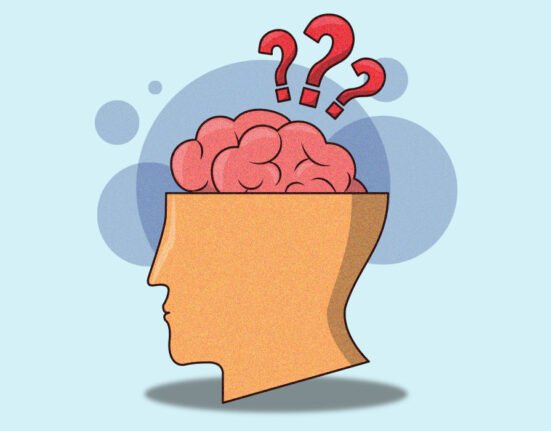Mood changes or mood swings can be understood as a sudden shift in the mood of an individual. When person suddenly goes feeling sad from being happy or goes disappointed from being excited. Suppose you are feeling very excited and happy when you woke up but on the breakfast table, all of a sudden you feel empty and lost and as if you have nothing to live up to.
Is it Normal to Get Mood Swings?
Mostly, people feel energetic and happy around the noon and tend to start feeling negative during late afternoon and evening. It is normal for a person to experience different emotions throughout the day based on circumstances or situations as long as those quick change of emotion don’t disrupt their life and the people around them. Some lifestyle and situational factors play an important role in the mood shifts like
- Significant life changes like changing a job, migrating to a new place, getting married or divorced etc.
- Continuous feeling of stress and overwhelm
- Lack of enough or quality Sleep
- Lack of nutritional diet
- Having medications that affects mood or sleep.
However, severe mood changes on regular basis can be a result of an underlying condition in both males and females. Some conditions affect only females while others affect both of the sex. These conditions can be either due to some bodily changes or some mental illness. In both cases, the overall well-being of an individual is threatened.
Also Read: Tips to Manage Mood Swings and Regaining Emotional Balance
Some Serious Causes for Mood Swings
It is important to figure out the reason behind your emotional roller coaster. Some of them are normal but sometimes it can get serious due to following causes:
1) Stress and Anxiety
Daily hassles and day to day events, both good and bad is one of the big contributor to the changes in mood. Especially, sensitive people react more often to situations than those who are less sensitive. Some people get anxiety which means feeling of uneasiness, fearfulness and worry when even there is no reason to feel this way. There is a good possibility that such people are diagnosed with Generalized Anxiety Disorder. The worry and anxiety are difficult to control and cause significant distress and/or impairment in the individual’s functioning (Mortazavi, A., Youn, S. J., Newman, M. G., Castonguay, L. G., & Molnar, C., 2014).
2) Depression:
Depression is more than just sadness. It is a negative affective state, ranging from unhappiness and discontent to an extreme feeling of sadness, pessimism, and despondency, that interferes with daily life (American Psychological Association, 2018). There is a possibility for someone is depressed to get mood swings. Depressed people may feel worse in the morning and become cheerful later that same day (WebMD, 2023).
Also Read: The Magic of Good Memories on Mood Alleviation
3) Bipolar Disorder:
Mood swings or switches in the mood are quite intense in the people who are diagnosed with Bipolar Disorder. They experience highs and lows in the mood quite frequently. Someone with bipolar disorder can possibly be elated and live the life of a party for several days like spending too much money, talking all the time, not sleeping at all. And on other days they might end up not getting out of bed or being sad and gloomy all the time.
Some other causes are conditions of Borderline Personality Disorder, Attention Deficit Hyperactivity Disorder, and even hormonal changes can cause a person to get mood swings. This might be the reason why teenagers are considered moody because those are the years when hormonal changes in body takes place.
In females, PMS, pregnancy, menopause and perimenopause can lead to unpredictable changes in mood. Whereas in males, low levels of testosterone, erectile dysfunction, sleep problems are some causes that can lead to unpredictable mood.
Also Read: Homesickness: Life of students outside their home country
What Can You Do to Deal with Mood Swings?
The first thing is to recognize and accept the concern that is leading to your mood swings and how it is effecting your daily efficiency. It can be done by reflecting on your recent behavior. By doing that, a person can manage mild and less frequent mood swings on their own. Mood swings can be difficult to regulate but here are some ways that can ease the process for you:
- Exercising regularly helps to stabilize hormones and therefore helps to manage mood swings efficiently. It also helps to channelize all the negative energy in a productive way. An hour of walk or even practicing some yoga regularly can be of great help.
- Nutritional diet plays a very important role in how we feel about ourselves. A person who is eating a diet that’s nutritionally inadequate or not getting enough to eat may experience mood changes in response to fluctuating blood sugar levels and malnourishment (Schimelpfening, 2023).
- Learning stress management techniques because as we discussed, daily stressors affect the overall mood of an individual and affects its ability to cope with it as well. Some of these techniques are practicing mindfulness or meditation, connecting with nature, even exercising and having a healthy diet comes under the techniques of managing stress which will ultimately stabilize your mood.
- Eliminating substance use from life or at least minimizing it will itself result in better management of mood swings. It includes substances like alcohol, cigarettes, tobacco and drug addiction as well. Eliminate them and you will see a great difference in your mood swings because they can cause even serious health condition in future if consumed often.
When to Seek Professional Help?
With the help of techniques mentioned above, it is possible for a person to efficiently manage their mood. However, sometimes the situation might get out of hand where it becomes way difficult to even identify the problem that is causing such mood swings in a person. If the mood swings get too difficult to deal with, it is suggested to seek a doctor. You can visit your physician to get a body checkup and see if there is any physical issue to address. Mental health is equally important as well. Therefore, consider seeking a mental health therapist to address your mental health issues.
Also Read: The Five-Factor Model of Personality: All You Need To Know
Psychotherapy is very useful in understanding self and learning to coping skills to process emotions that we go through during mood swings. Cognitive Behavioral Therapy is one type of psychotherapy where the therapist will help you to change your thinking and behavioral pattern by addressing your irrational thoughts and countering them with a more constructive approach which can eventually add to management of mood swings. Dialectical Behavioral Therapy is another type of psychotherapy that helps people learn how to better control their anger and impulses and manage their dramatic mood shifts (WebMD, 2023).
Managing mood swings can get difficult at times, but you are not alone in this struggle. It is important to destigmatize mental health by reaching out to help and encouraging others who are struggling to do the same.
References+
- https://dictionary.apa.org/depression?amp=1
- Leonard. J. (2020). What Causes Mood Swings in Males and Females?. MedicalNewsToday.
- https://www.webmd.com/bipolar-disorder/are-my-mood-swings-normal
- https://www.verywellmind.com/what-are-mood-swings-1067178#toc-how-to-cope-with-mood-swings













Leave feedback about this